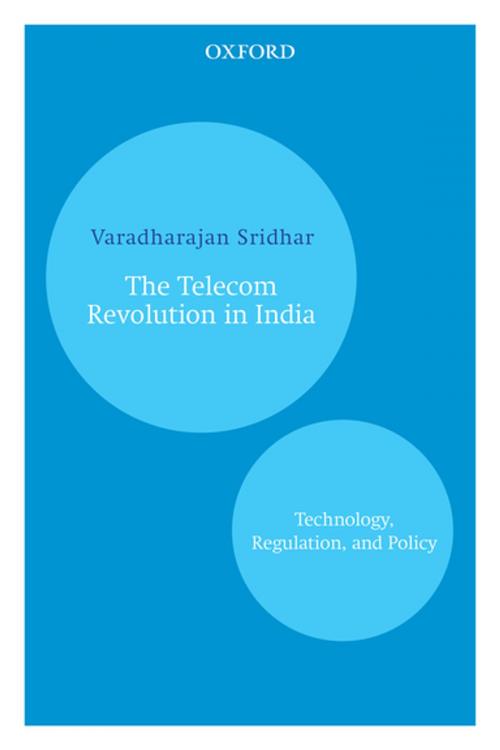The Telecom Revolution In India
Technology, Regulation, and Policy
Business & Finance, Management & Leadership, Industrial Management, Planning & Forecasting| Author: | Varadharajan Sridhar | ISBN: | 9780199088614 |
| Publisher: | OUP India | Publication: | November 3, 2011 |
| Imprint: | OUP India | Language: | English |
| Author: | Varadharajan Sridhar |
| ISBN: | 9780199088614 |
| Publisher: | OUP India |
| Publication: | November 3, 2011 |
| Imprint: | OUP India |
| Language: | English |
Telecom, a phenomenon of the 1990s, has been witnessing tremendous growth, contributing to more than 2 per cent of India's GDP. Once considered a luxury, it is now accessible to all sections of society. Penetrating to even the remotest corners of the country, it is now propelling a revolution. Next to China, India is today the second largest telecom market in the world. This book highlights the unique cost structure, tariff regulation, and universal service obligations of basic telecom services. It dwells upon the different stages of spectrum allocation and management, including third generation and broadband wireless services. The trade-off between competition and industry efficiency due to limited spectrum availability and fragmentation is well emphasized. The value chain of the broadcasting sector and unique satellite applications are assessed. The book cites success stories of cost-effective operator services. The reasons for the lagging manufacturing sector in the telecom industry are carefully delineated. Finally, alliances and partnerships amongst different entities in the sector are analysed.
Telecom, a phenomenon of the 1990s, has been witnessing tremendous growth, contributing to more than 2 per cent of India's GDP. Once considered a luxury, it is now accessible to all sections of society. Penetrating to even the remotest corners of the country, it is now propelling a revolution. Next to China, India is today the second largest telecom market in the world. This book highlights the unique cost structure, tariff regulation, and universal service obligations of basic telecom services. It dwells upon the different stages of spectrum allocation and management, including third generation and broadband wireless services. The trade-off between competition and industry efficiency due to limited spectrum availability and fragmentation is well emphasized. The value chain of the broadcasting sector and unique satellite applications are assessed. The book cites success stories of cost-effective operator services. The reasons for the lagging manufacturing sector in the telecom industry are carefully delineated. Finally, alliances and partnerships amongst different entities in the sector are analysed.















